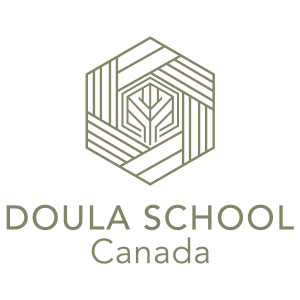September 30 is The National Day for Truth and Reconciliation in Canada. It is a day to remember and reckon with the history of residential schools, the children who never returned home, and the families and communities forever changed by that legacy. This is a day for truth-telling, for listening, and for acknowledging how the past still shapes the present.
As birthworkers, we often find ourselves walking with clients through moments of deep transformation. But to walk with intention, we need to understand the full story of the land we work on, and the people we care for.
June is for Celebration, September is for Reflection
In June, during National Indigenous History Month, we are invited to celebrate the rich cultures, traditions, languages, and birthkeeping practices of First Nations, Inuit, and Métis peoples. It’s a time to learn from the brilliance and strength that continues to thrive in Indigenous communities across this land.
September 30, however, asks something different from us.
This is a day for settlers, non-Indigenous birthworkers, and those with privilege in the healthcare system to sit with the truth. The full, difficult history of how Indigenous peoples were targeted, harmed, and systematically stripped of their rights, their children, and their ways of life.
The legacy of residential schools is not something that lives only in the past. It lives in the bodies of Survivors. In the gaps in healthcare access. In the mistrust of institutions. And yes, sometimes, it shows up in the birth room. In ways that may be quiet, but deeply felt.
Why Truth and Reconciliation in Birthwork Matters
When you are supporting an Indigenous client, you may also be supporting someone whose family was impacted by displacement, forced assimilation, or intergenerational trauma.
You may be the first person to offer respectful, affirming care.
You may be the person they’re trying to decide whether to trust.
You may not know the full story, but your ability to show up with humility, awareness, and a willingness to learn can make all the difference.
Knowing the history helps you hold space with more care. It helps you notice when fear is really about more than just labour. It reminds you not to take mistrust personally, and instead to honour the truth behind it.
Truth Comes First
There can be no reconciliation without truth. And truth is not comfortable. It asks us to face the facts of what happened, not to dwell in guilt or shame, but to do better. In birthwork, that means continuing to unlearn what we were taught, to make space for Indigenous knowledge systems, and to respect the unique needs of Indigenous families.
This September 30, take the time to listen, read, and reflect. It’s never too late to deepen your understanding or to build, or reimagine, a practice rooted in truth. When we know the past, we’re better equipped not to repeat it.
Looking for more info? Click here to view our full list of resources to guide learning, action and support.

About the Author: Aunjrya Fleming
Aunjrya is the EDI lead for Doula School. She is a Registered Nurse and International Board Certified Lactation Consultant (IBCLC) with a deep commitment to reproductive justice. She brings years of experience working with racialized, refugee, and 2SLGBTQIA+ families as a maternal health navigator, educator, and advocate. Aunjrya is passionate about building equity-informed spaces that center safety, dignity, and agency for all birthing people.


